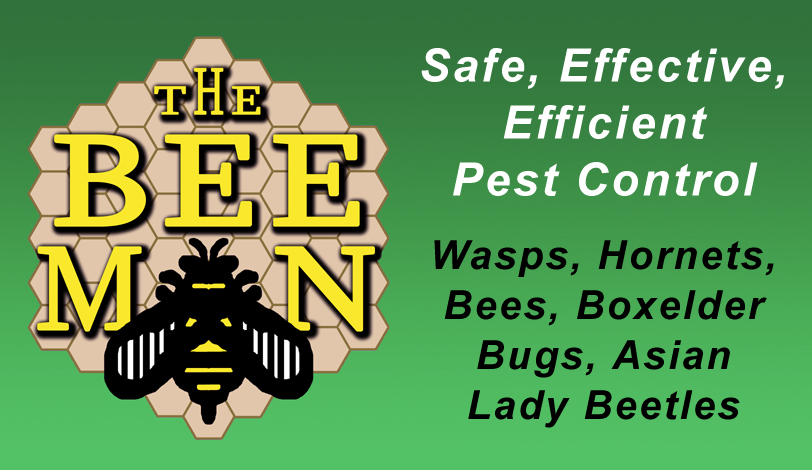“The Bee Man,” Curt Jepson, was possibly one of the most welcome guests William Pierce ever welcomed into his Brookfield home.
Pierce, 69, is severely allergic to the stings of wasps, yellow jackets and fire ants. “Exquisitely allergic” is how Pierce’s allergist describes his patient’s life-threatening reaction.
So when Pierce spied a yellow jacket nest “the of a basketball” in his juniper tree, he was suitably alarmed.
Enter Jepson, a bee-bashing hero to people like Pierce, who could die from a number of stings. For more than 13 years, Jepson has worked at night — and for free — to remove insect nests from tree limbs. Night hours ensure that no strays will left behind, he said.
Back at his Brookfield office, he freezes the nest, then cuts it open to remove the bees. They are sent in dry ice to two laboratories that extract venom to supply pharmaceutical companies. They in turn produce dried venom, which is used to treat individuals such as Pierce.
The laboratories, in Pennsylvania and Washington state, are the only ones in the country that produce the venom, Jepson said, and he is the only person in the Milwaukee area who has a contract to supply insects to the labs.
Jepson, 50, became involved in the bee business because of his pest control company, now named The Bee Man, Inc. He termed nest collection “a hobby that got out of hand.”
Most collecting takes place between July and October. This season, he has removed about 200 nests.
Pierce spent a good share of his life unaware of his disastrous reaction to insect stings. Then, on a Florida golf course six years ago, he nearly lost his life after being stung 25 times by fire ants. When he experienced double vision and difficulty breathing, he was rushed to the hospital. A year later, a similar reaction came from just two bee stings in Minnesota. Before he arrived at the hospital, he had passed out.
Since being diagnosed, Pierce has received three venom injections monthly to build up immunity to stings. Still, he has no guarantee of surviving more than two insect stings.
The situation has curtailed former activities such as backpacking and white-water canoeing. “It has put me on a rather short leash,” Pierce said. He said his gratitude for Jepson’s nest removal was immense.
As for getting stung himself, Jepson said: “I’ve had too many stings to count over the years.”






